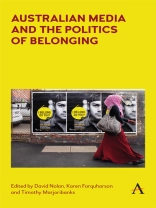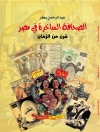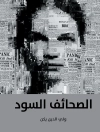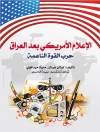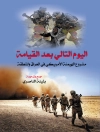‘Australian Media and the Politics of Belonging’ explores mediated debates about belonging in contemporary Australia by combining research that proposes conceptual and historical frameworks for understanding the concept in the Australian context. A range of themes and case studies make the book a significant conceptual resource as well as a much-needed update on work in this area. ‘Australian Media and the Politics of Belonging’ also provides an intervention that engages with key contemporary issues, questions and problems around the politics of belonging that are relevant not only to academic debate, but also to contemporary policy development and media and popular discussion.
The chapters address a variety of key issues and questions regarding the ethics of media practice and actual media practices – consideration of ethical obligations, media treatment of different populations and the degree to which media serve not only as sites through which a range of voices contribute to definitions of Australian belonging but also, significantly, as a means through which such voices can be heard. An engagement with the problem of ethical practice also asks how a greater understanding of the impact of media representations can contribute to new ethical frameworks and new forms of media practice in areas of key sensitivity such as the reporting of Islam. [NP] In addressing such issues ‘Australian Media and the Politics of Belonging’ provides an important resource for understanding, and makes a vital contribution to, debates surrounding belonging in Australia.
Tabella dei contenuti
List of Illustrations; Acknowledgements; Part I Theorizing Belonging in Contemporary Australia; 1. Australian Media and the Politics of Belonging, David Nolan, Karen Farquharson and Timothy Marjoribanks; 2. Politics of Belonging in a Mediated Society: A Contribution to the Conceptual Exegesis, Val Colic-Peisker; 3. Media, Belonging and Being Heard: Community Media and the Politics of Listening, Tanja Dreher; Part II Sudanese Australians, Media Practices and the Politics of Belonging; 4. Talking about the Other: Sudanese Australians and the Language of Difference on Talkback Radio, Scott Hanson-Easey; 5. In a Context of Crime: Sudanese and South Sudanese Australians in the Media, Karen Farquharson and David Nolan; 6. Journalism Practice, the Police and Sudanese Australians, Denis Muller, Karen Farquharson and David Nolan; 7. Constructing the Heroic Other and ‘They Always Asked about Africa, They Never Asked about Me’: Three Screen Representations of Sudanese Australians, Paola Bilbrough; 8. Towards an Australian Framework for Best Practice in Reporting News Involving Muslims and Islam, Jacqui Ewart and Mark Pearson; 9. Creating Media, Creating Belonging: Young People from Refugee Backgrounds and the Home Lands Project, Raelene Wilding and Sandra Gifford; 10. Creating Belonging: The Possibilities and Limitations of an Organizational News Media Intervention, Timothy Marjoribanks, Denis Muller and Michael Gawenda; Notes on Contributors; Index.
Circa l’autore
David Nolan is senior lecturer in media and communications and deputy director of the Centre for Advancing Journalism at the University of Melbourne, Australia.
Karen Farquharson is head of the School of Social and Political Sciences and professor of sociology at the University of Melbourne, Australia.
Timothy Marjoribanks is associate dean (research and development) and professor of management at Swinburne University of Technology, Australia.
